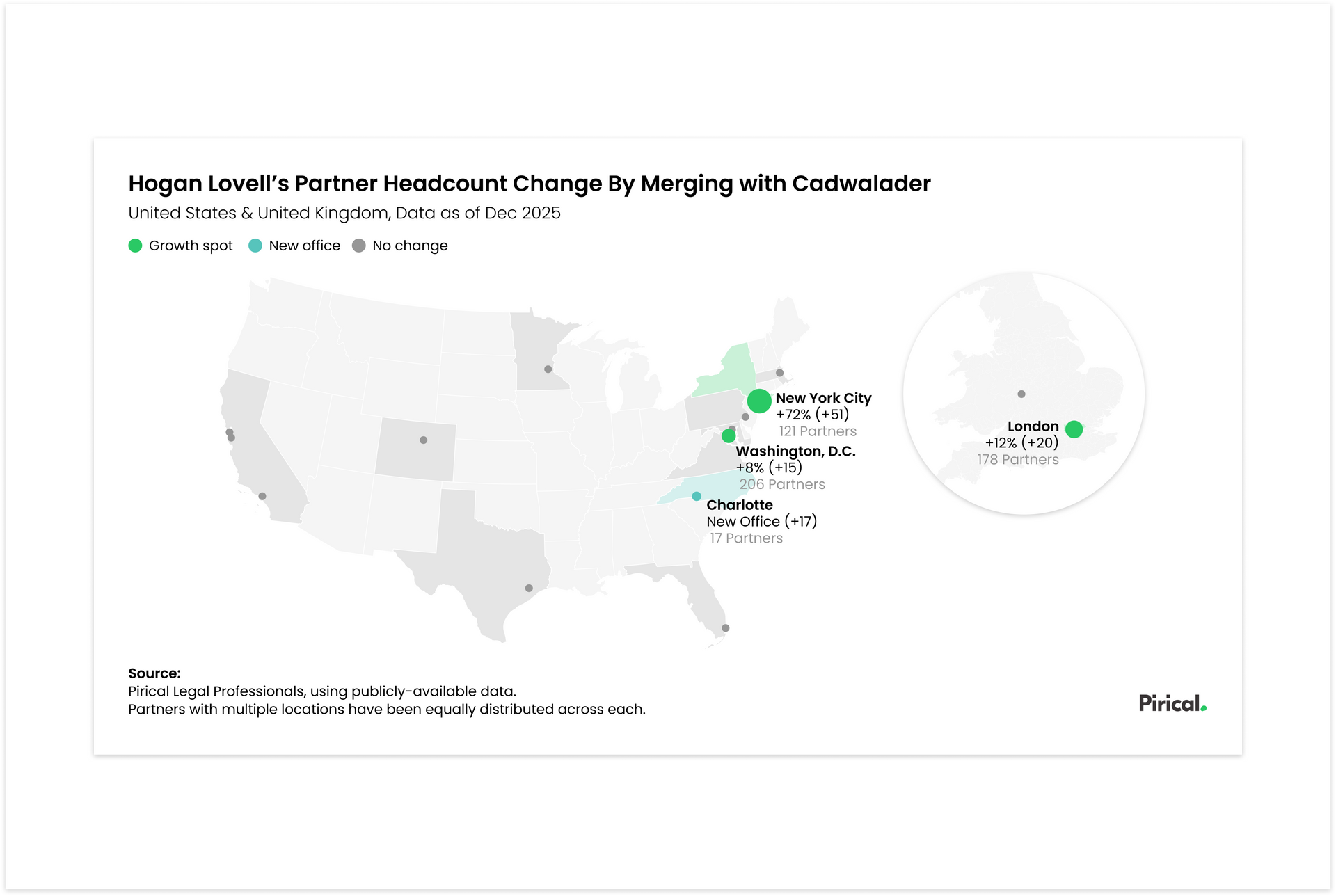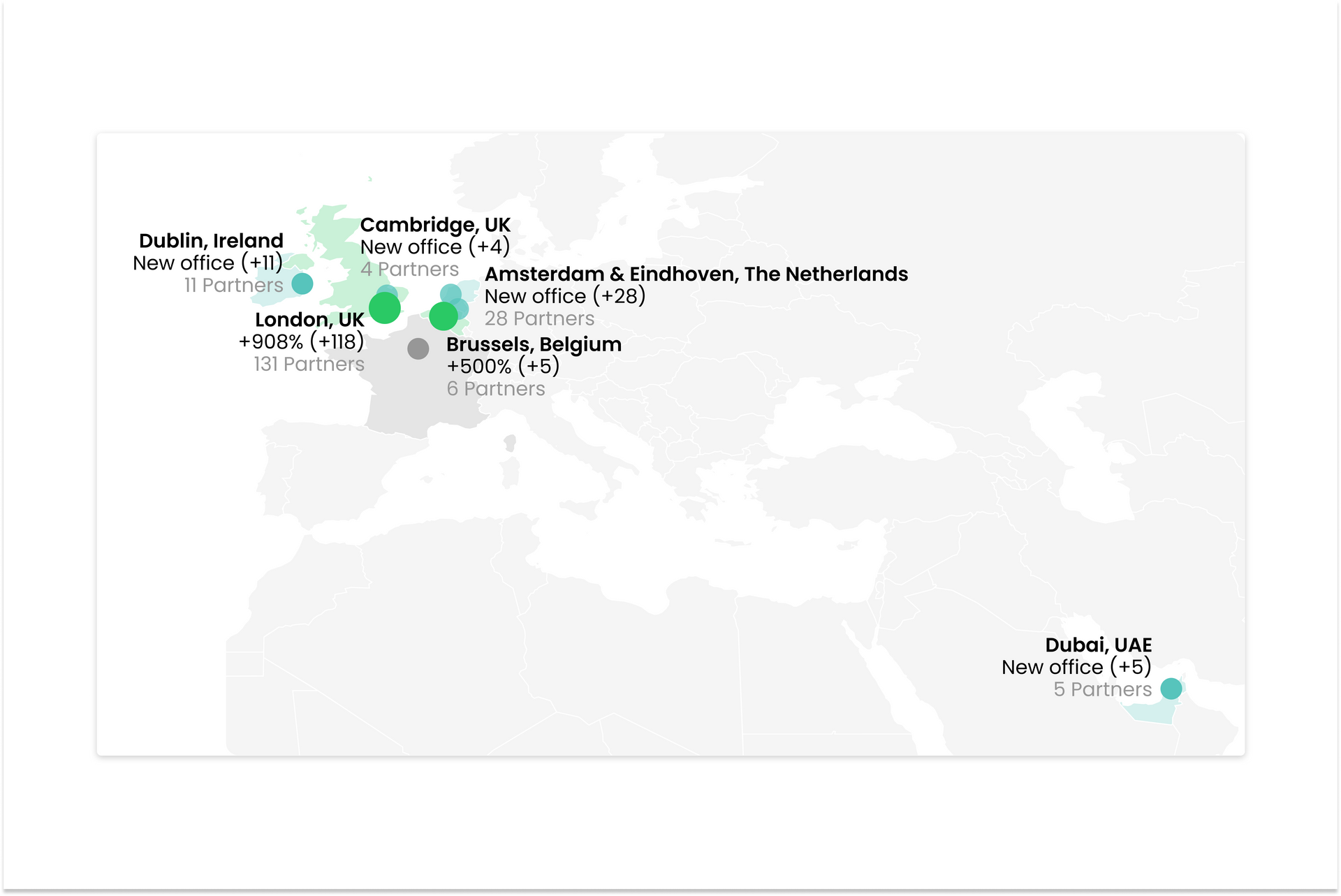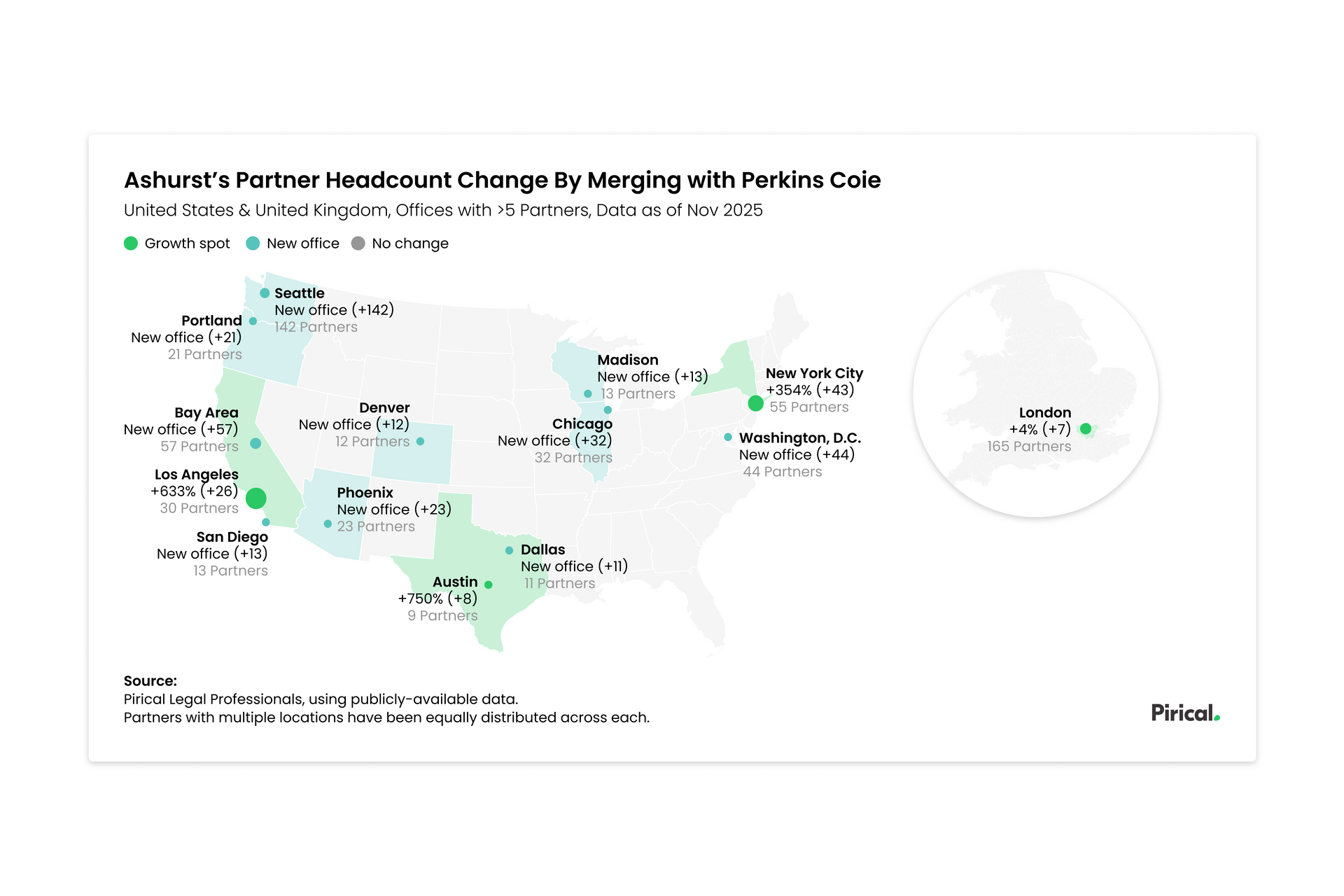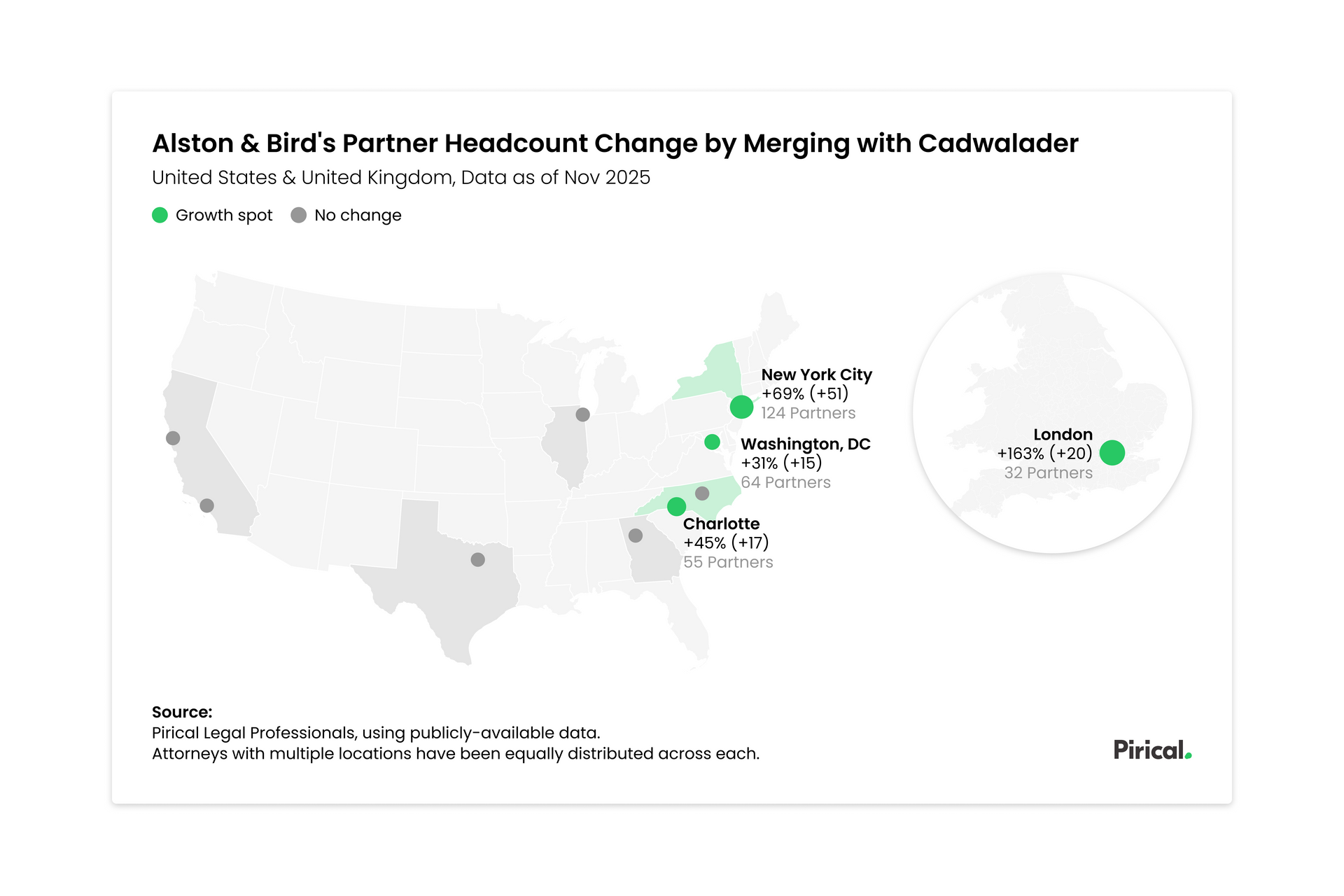Do privileged children who attended the best schools become better performing employees?
Does a better performance at A-levels predict a better performance as a lawyer?
If they had to bet, most people would say yes to that proposition.
Well, most people would be wrong, as our data shows. Outperforming your peers at A-levels does not predict better performance as a lawyer. Who would have thought?
However, there is one exception where this presumption IS correct indeed. In one type of school there is a strong correlation between relative A-level performance and later performance as a lawyer.
Which one is it?
Contextual Recruitment
In 2014, Alan Milburn called on Britain’s institutions to make it a country where “success relies on aptitude and ability more than background or birth.” Since then, we in the recruitment space have paid attention to Contextual Recruitment, which relies on the idea that a candidate’s achievements should be measured in the context in which they attained them.
For example, getting two As and a B at A-levels and having gone to a good school, that’s a good result, on the face of it. But if you’re the first person in your family to ever apply for university, or have a refugee background, this result changes from good to very impressive.
Or two people in different schools, one in a top school, the other in a mediocre one, both with the same grades at A-levels? Contextual Recruitment says that the second person is likely to be the better pick.
However, while academic institutions and a few select organisations have long been supporters of Contextual Recruitment, it is far from mainstream. Where Contextual Recruitment is used, the delay between hiring and measuring on-the-job performance means results will not be known for some time.
Nonetheless, it is possible to retroactively estimate how much impact Contextual Recruitment can have. We do this by examining the application, recruitment, and performance data of a City law firm, with a focus on an applicant’s A-Level results.
Assessing the impact of privilege
Let’s start by asking a simple question: ‘Do lawyers who attended a high-performing school become high-performing lawyers once hired?’ In Figure 1, we show the relationship between the performance of the secondary school attended and the lawyer’s own performance on the job.
Figure 1: Correlation between school performance and on-the-job performance
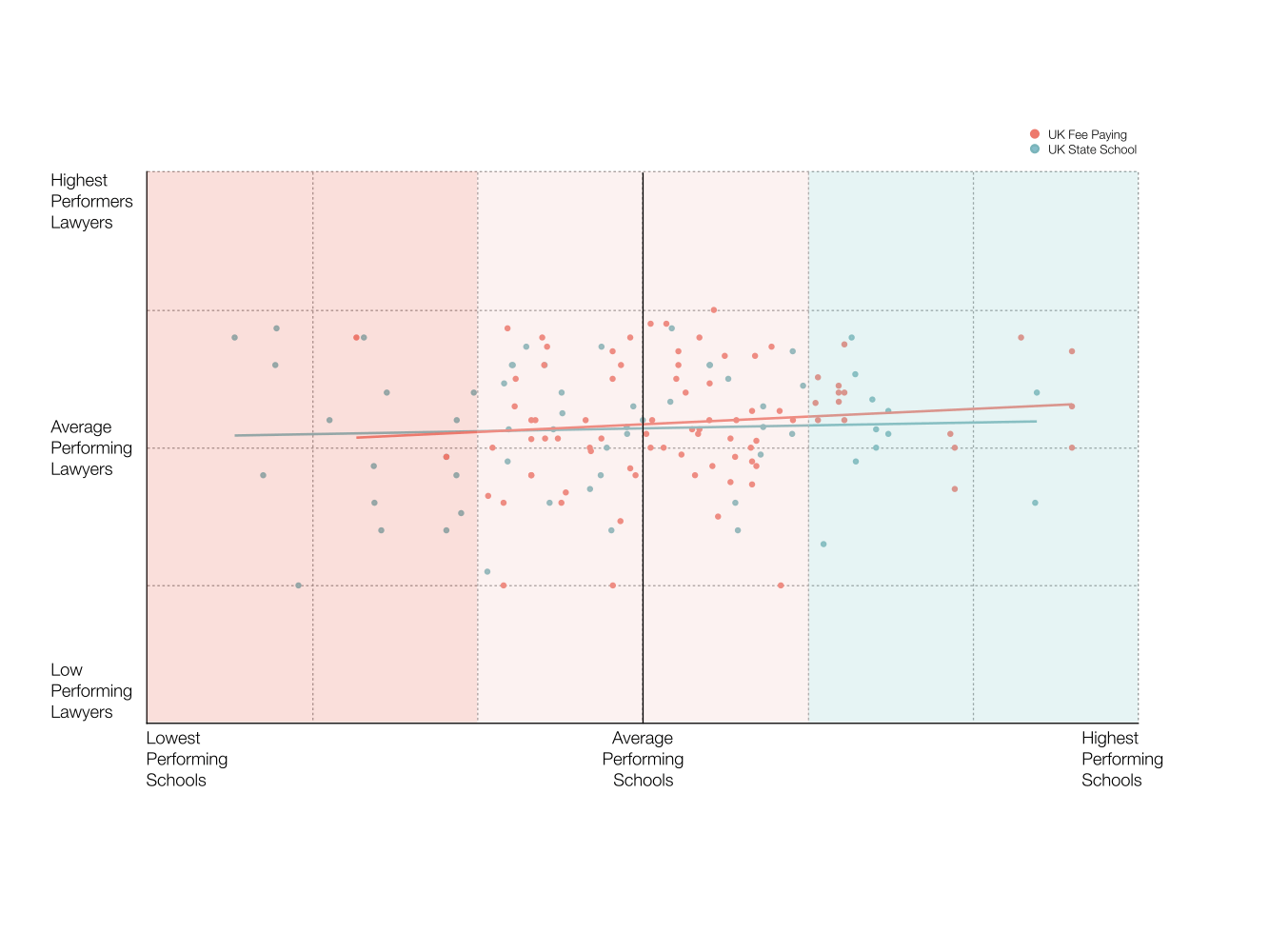
For both UK Fee Paying Schools and UK State Schools, there is no correlation. In other words, knowing where a lawyer attended school does not help predict their performance on the job .
There is one caveat here — this data set is constructed of lawyers who were hired , hence carry with it a selection bias. However, one of the premises for Contextual Recruitment should still hold — namely that those who achieved better A-Level results compared with their student peers should be higher performing lawyers.
Adding the contextual component
On the whole, lawyers who attended low performing schools performed just as well as their peers who attended high performing schools. Is there additional context that matters? To answer this, let’s look at each lawyer’s individual performance relative to their school’s performance, and regress that against their job performance.
Figure 2: Correlation between relative school performance and on-the-job performance
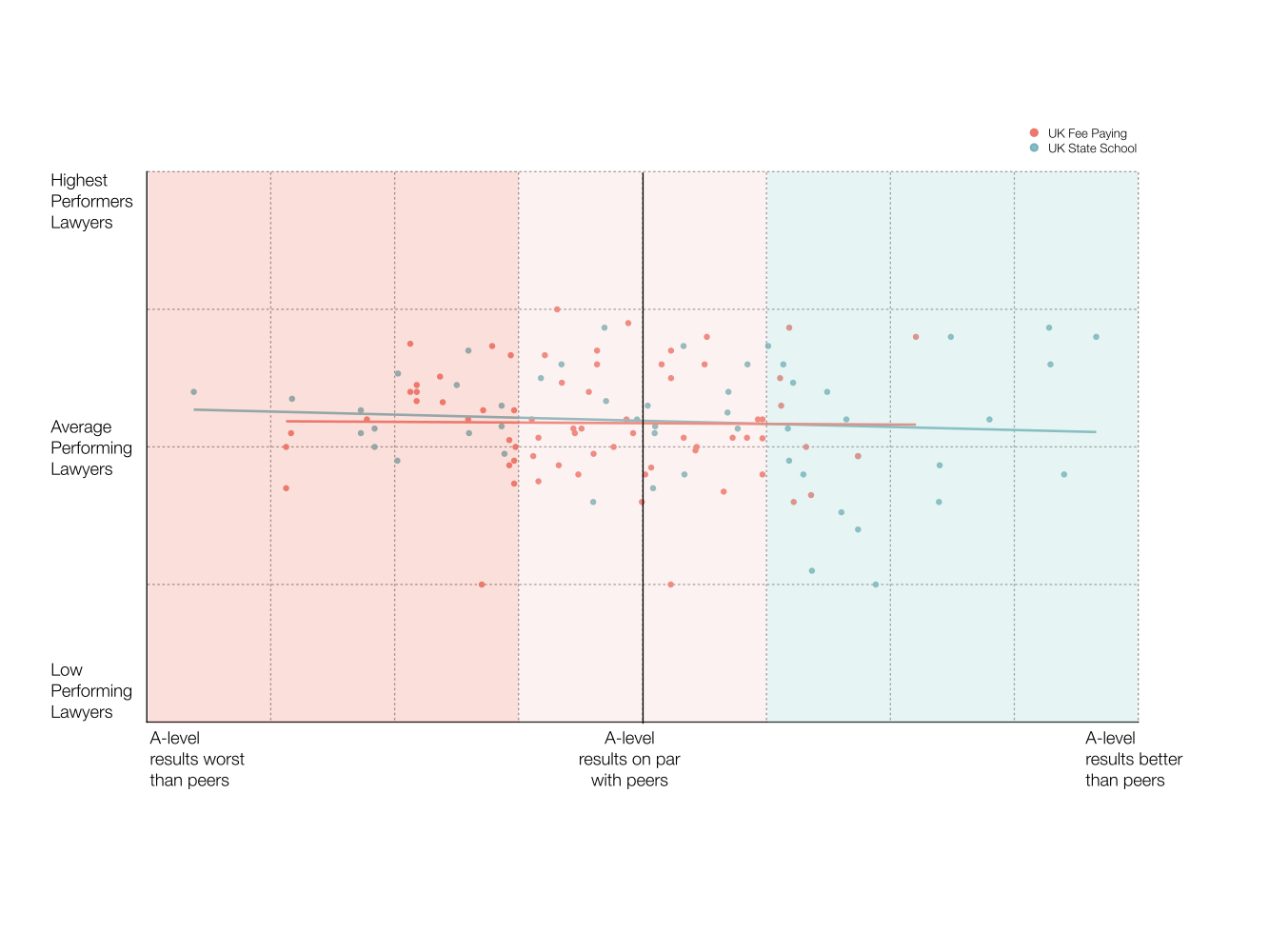
Figure 2 suggests there’s no correlation - knowing that a lawyer performed better than her school peers in A-Levels doesn’t help predict her performance on-the-job. However, there are 2 issues:
-
The results are skewed. It is difficult to achieve A-Level results that are better than the school average, when the school average is high, and
-
Social mobility’s goal of “equality of opportunity, as opposed to equality of outcome” (as David Cameron laid out in his speech at the Conservative party Conference in 2014) means we aren’t concerned about the performance of just any school. What we really want to examine are applicants from the bottom performing schools.
To push this analysis to the next level, let’s regroup the data set by quintiles of UK schools, where the grouping is based on the average A-level results of pupils. Figure 3 shows a useful outcome starting to emerge.
Figure 3: Correlation between relative school performance and on-the-job performance, group by school performance
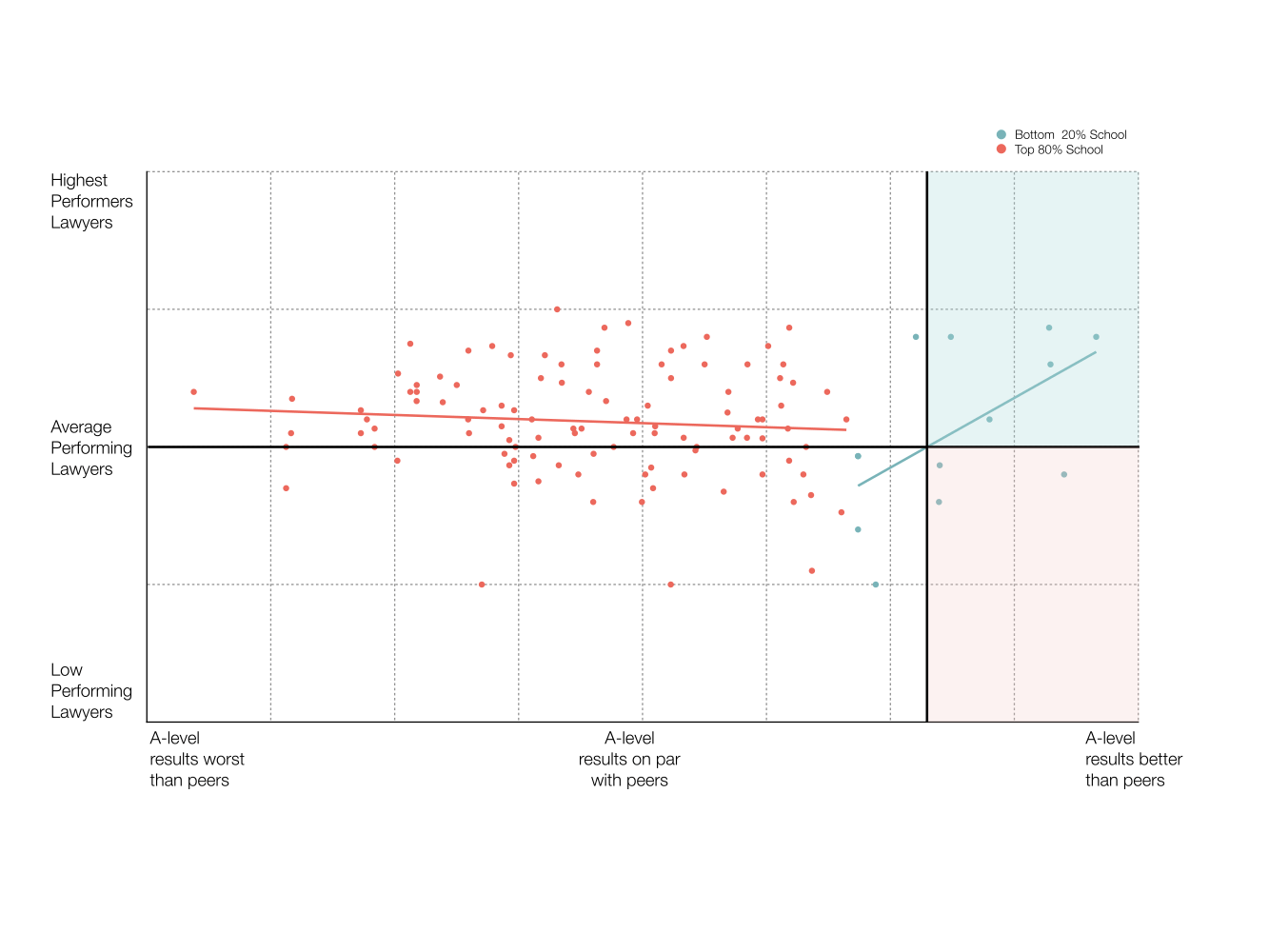
An R-squared of .328 for the bottom 20% of schools suggests that for candidates who attended a low-performing school, the more they outperformed their school peers, the better they performed as a lawyer.
Not only that, but if we want to predict who will be a strong performing lawyer, we can calculate the point where the trend crosses the ‘Average Performance’ line — precisely at 228 points above their school average. In other words, applicants who attended a UK School in the bottom 20 percentile and achieved A-Level results of at least 228 points above their school average are ‘high-potentials’ who are predicted to outperform as lawyers at this law firm.
The implication on recruitment
While the data set is sparse, it is possible to surmise its significance. Using historical data, we identified roughly 200 applicants that fit this ‘high-potential’ category. Of these, a higher proportion were screened out compared to applicants who attended UK Fee-Paying schools. In other words, a large cohort of high-potential applicants were never given an opportunity to interview .
So what happened to them? Using data available in the public domain, we verified that only a handful were eventually hired by other City law firms (which is information you can now easily find using Pirical Legal Professionals , our Search Engine for Legal Talent). This overall low rate is likely the result of a larger-scale systemic issue, which Contextual Recruitment can help address over time.
The takeaway is clear: Exceptional A-level results from someone who attended a low-performing school should excite any legal recruiter worth their salt: You may have a real gem on your hands.
The power in the data
These kinds of insights became available by digging into one law firm’s data. The law firm in question was kind enough to allow us to publish them here. Countless fascinating insights are hidden in large datasets every law firm holds.
If you would like to get started with this analysis in your firm, get in touch — it’s what we do best.
Subscribe to the latest data insights & blog updates
Fresh, original content for Law Firms and Legal Recruiters interested in data, diversity & inclusion, legal market insights, recruitment, and legal practice management.

